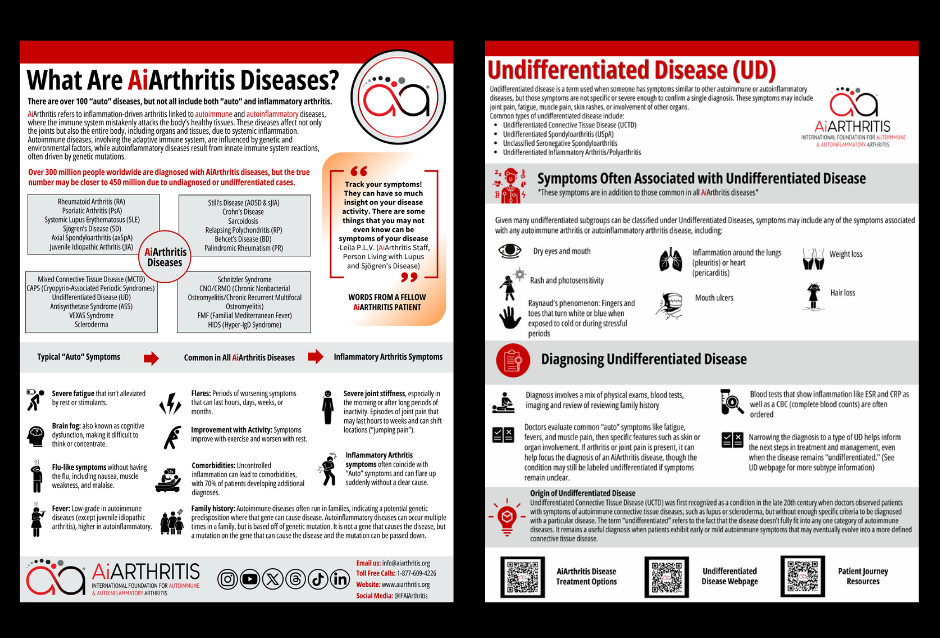Understanding Muckle-Wells Syndrome (MSW)
CAPS Encompasses Three Main Conditions:
These conditions share common features such as recurrent episodes of fever, rash, joint pain, and systemic inflammation, but vary in severity and specific symptoms. Early diagnosis and treatment with IL-1 inhibitors can significantly improve patient outcomes and quality of life.
Causes of Muckle-Wells Syndrome (MWS)
MWS is caused by a mutation in the NLRP3 gene, which leads to increased activity of the protein cryopyrin. This protein plays a role in the body's immune response, and its overactivity results in excessive production of interleukin-1 beta (IL-1β), a cytokine that causes inflammation.
Since it is inherited in an autosomal dominant manner, it means that only one copy of the mutated gene is necessary to cause the disorder. This means that if one parent has the condition, there is a 50% chance that their child will inherit it. The prevalence of MWS is estimated to be around 1 in 360,000 people, based on a French survey. However, this number may vary globally due to underdiagnosis or misdiagnosis.
AiArthritis Disease Symptoms
AiArthritis diseases share common features such as flares, where symptoms worsen for hours to months, and improvements with physical activity, while rest can make symptoms worse. Genetic predisposition or mutations can lead to these conditions running in families, and uncontrolled inflammation often results in comorbidities, affecting 70% of patients.
Key symptoms include:
- Severe fatigue that persists despite rest or stimulants
- Brain fog, making concentration difficult
- Flu-like sensations like nausea and muscle weakness
- Low-grade fevers (higher in autoinflammatory diseases)
- Joint stiffness, especially in the morning or after long periods of inactivity
- Sudden, shifting joint pain that starts and stops abruptly
Symptoms of Muckle-Wells Syndrome (MWS)
Muckle-Wells Syndrome (MWS) significantly impacts the quality of life for those affected by its persistent and debilitating symptoms. The symptoms of MWS typically begin in early childhood and can include:
- Recurrent fevers and chills
- Urticaria (hives) or skin rashes
- Arthralgia (joint pain)
- Conjunctivitis (pinkeye)
- Sensorineural hearing loss
- Amyloidosis, leading to kidney dysfunction
Learn more about Cryopyrin-Associated Periodic Syndromes (CAPS)
Diagnosis of Muckle-Wells Syndrome (MWS)
Muckle-Wells Syndrome (MWS) typically presents in childhood or adolescence, but it can sometimes be diagnosed later in life if symptoms are mild or not initially recognized. While it's uncommon for MWS to first appear in adulthood, it's not impossible. Early diagnosis and treatment are crucial for managing the condition and preventing complications.
Diagnosis of MWS involves a combination of clinical evaluation, family history, and genetic testing to identify mutations in the NLRP3 gene. Blood tests may also be conducted to measure levels of inflammatory markers and to detect amyloid deposits.
Treatment of Muckle-Wells Syndrome (MWS)
With appropriate treatment, individuals with MWS can lead relatively normal lives. Early intervention and ongoing management are crucial to prevent long-term complications, particularly amyloidosis. Patients need to adhere to a strict treatment regimen to manage symptoms effectively, which requires significant time and effort.
Treatment for MWS focuses on managing symptoms and preventing complications. Medications that block the action of IL-1β, such as anakinra, canakinumab, and rilonacept, have been effective in reducing inflammation and improving quality of life. Hearing aids or cochlear implants may be recommended for those with significant hearing loss.
Learning to adapt to limitations and finding ways to manage daily life with MWS is essential. This might include lifestyle adjustments, such as modifying work hours or utilizing assistive technologies.
Who Treats Muckle-Wells Syndrome?
Living with MWS requires a multidisciplinary approach involving rheumatologists, immunologists, and audiologists. Patients and their families may benefit from support groups and resources that provide education and emotional support.
Muckle-Wells Syndrome (MWS) is typically managed by a
rheumatologist, a specialist in autoimmune and inflammatory disorders. Rheumatologists are trained to diagnose and treat conditions like MWS that involve chronic inflammation and immune system dysfunction.
In addition to a rheumatologist, other healthcare providers may be involved in the care of someone with MWS, including:
- Immunologists: Specialists in the immune system who can help manage the inflammatory aspects of the disease.
- Geneticists: Experts in genetic disorders who can provide genetic counseling and testing.
- Nephrologists: Specialists in kidney health, especially important if amyloidosis affects kidney function.
- Audiologists: Specialists in hearing who can help manage hearing loss associated with MWS.
A multidisciplinary approach ensures comprehensive care and better management of the various symptoms and complications of MWS.
Related Blog Posts
November 29, 2025
Having multiple health conditions when living with an AiArthritis disease is not uncommon, discover why and what conditions are common.
July 16, 2025
Learn more about World Sjögren’s Day.
May 30, 2025
Discover more about rare disease Schnitzler Syndrome
Show More










